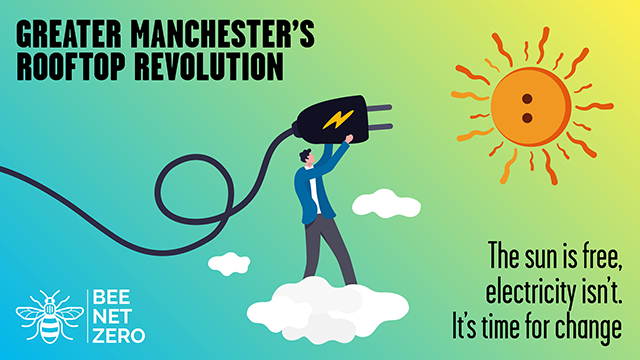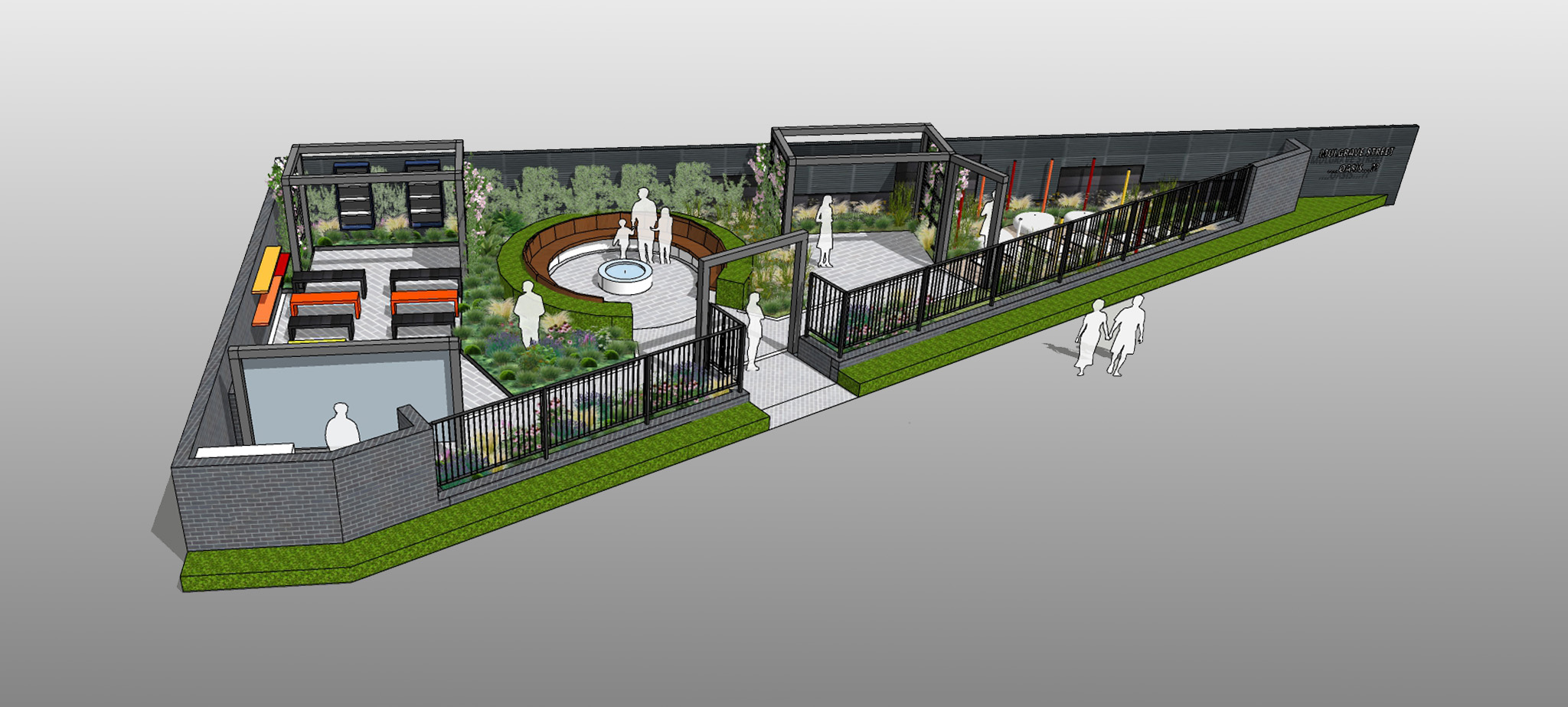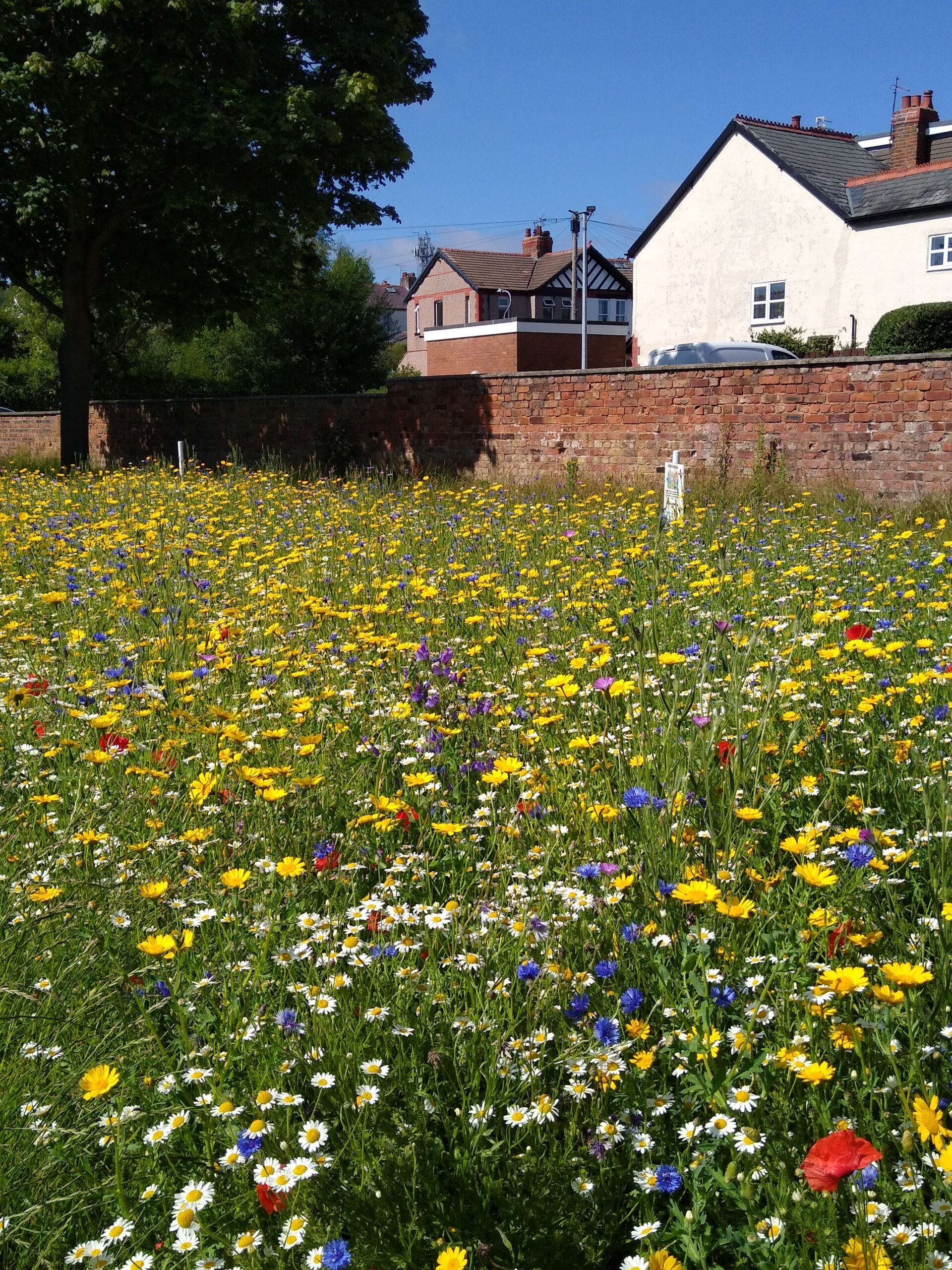
Wildflowers on the Puddydale
The Puddydale, Wirral
Our Story
If you have seen a wildflower meadow in bloom, I am sure you have appreciated it, whether it be for the beauty of the flowers or the habitat and sustenance it provides for insects, butterflies and other wildlife. This was what we wanted to create in the middle of a built up town environment.
We wanted to explain to others the importance of creating these food sources for our disappearing insect life and encourage others to copy our example, whether it be in their garden or a public space, in their shopping or commercial area. A wildflower area is a great alternative to the manicured areas of bedding plants that are more common in urban areas. It is also much appreciated by many, adding to health and wellbeing of communities. So many passers-by stopped to admire the flowers in bloom and read our signs.
The Heswall Joint Rotary Environment Group was formed not only to bring together the resources of three local Rotary Clubs for the support of our environment, but to reach out to others in our community to join with us in our environmental projects.
The Challenge
In the early stages of the project, we seeked advice from Wirral Wildlife and New Ferry Butterfly Park who helped us analyse the soil type, prepare the ground correctly, and purchase seed to suit the soil.
Effective engagement with the local council allowed us to get permission to use a piece of Council land on a local area in central Heswall, known as the Puddydale. Establishing relationships with key stakeholders is vital for a project like this to succeed. It allowed us to reach out to volunteers who played a huge role in helping carry out the work.
There was a slight worry that the site could be victim to vandalism due to courteous temporary signage, however local residents were great in helping manage the site and prevent such damage from happening.
Our Solution
Having been successful in obtaining a grant from the Liverpool City Region Environment Fund, we had to complete the project between March and October 2021, which worked well with the growing season. The turf was removed from an area of approximately 100 sq metres, the ground rotavated, and then thoroughly raked to prepare for the seed.
By sowing a combination of annual and perennial wildflower seeds, a good show of flowers was achieved this year, with more to follow in 2022 and 2023 as the perennial flowers also come into bloom. A fair amount of physical work was involved but with a good number of volunteers in short shifts, the workload was not onerous. Fortunately the weather was on our side on all our working days!
This was an excellent small project that could be copied in any urban environment where a patch of land can be found. It has been appreciated by so many residents, provided a great source of food for pollinators and other insects, and helped to get members of the community working together. We hope that the interpretive panel will continue to inform and encourage others to take similar action.
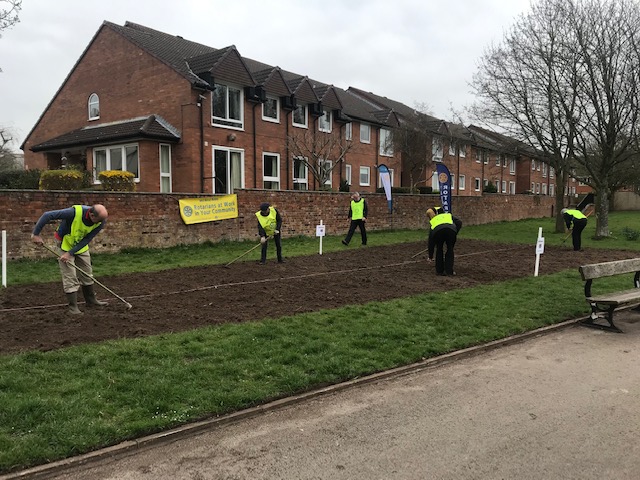 Following turf removal and rotavating, time for lots of raking
Following turf removal and rotavating, time for lots of raking
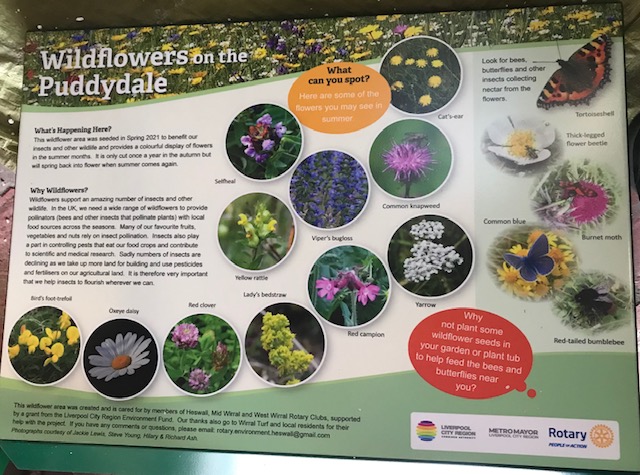 A good quality panel was essential to inform and inspire others
A good quality panel was essential to inform and inspire others




